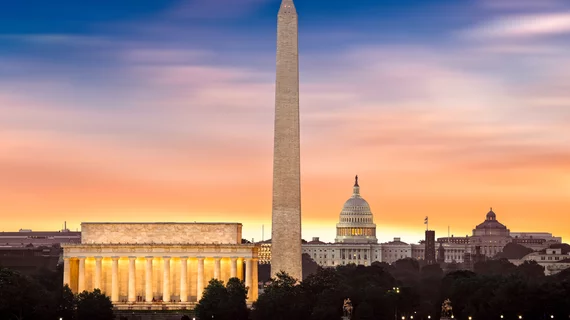Medical groups renew push to kill ‘disastrous’ device tax
The Medical Imaging & Technology Alliance (MITA), American College of Radiology and other industry groups sent a letter to congressional leadership Tuesday, Sept. 24, asking for a permanent repeal of the “disastrous” medical device tax. A suspension of the tax is set to expire Jan. 1, 2020.
The groups claim in the letter that, between 2013 and 2015, the tax led to thousands of lost jobs, abandoned research projects and denied treatments.
“Congress needs to act now to stop a $20 billion tax on the medical technology industry from coming back at the end of the year,” Kevin Lobo, CEO of medical technology firm Stryker and board chairman for the Advanced Medical Technology Association, said in a prepared statement. “This tax hurts innovation and the development of future treatments and cures.”
First proposed in 2009, the tax is a 2.3% levy on most medical devices sold in the U.S., including MRI machines and CT scanners. Congress had suspended the tax twice from 2016-2018. Some 600 groups signed this latest letter to elected officials, representing patients, physicians, venture capitalists and hospitals.
Those signing the letter claimed 21,000 jobs could disappear without action from elected officials.
“If this tax is not fully repealed, it will continue to force companies to make difficult decisions on whether to invest in manufacturing operations, research and development, and other important investments in communities across the U.S.,” the letter stated.

